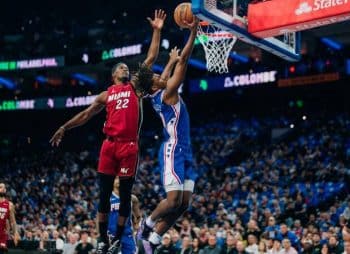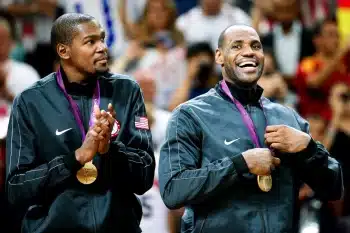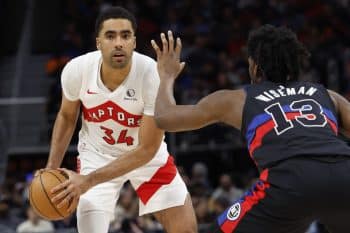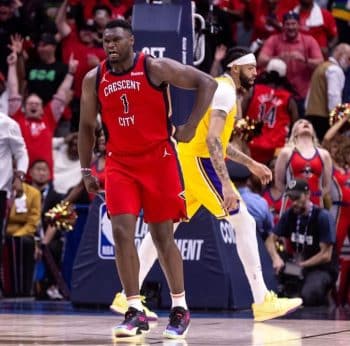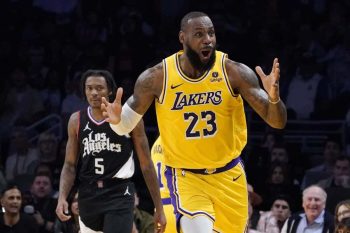NBA
NBA AM: Hawks To Restructure Front Office

As part of a restructuring of the Atlanta Hawks’ front office, Mike Budehnolzer will relinquish his title as President of Basketball Operations while remaining head coach of the Hawks and retaining a significant voice in player personnel decisions, according to Adrian Wojnarowski of The Vertical. Hawks GM Wes Wilcox will also remain with Atlanta’s front office in a high-ranking role while Atlanta seeks a new head of basketball operations he will report to, according to Wojnarowski.
Sources: Atlanta coach Mike Budenholzer will relinquish president's duties, GM Wes Wilcox will remain in a high-ranking front office role.
— Adrian Wojnarowski (@wojespn) May 4, 2017
This report comes after ESPN reported Wednesday that the Hawks were expected to part ways with Wilcox.
“Hawks leadership is undergoing a period of evaluation and looking at how basketball operations works best,” said the Hawks in a statement to the Atlanta Journal-Constitution Wednesday after the ESPN report surfaced. “There are no changes to report at this time and any reports indicating otherwise are inaccurate.”
Budenholzer was promoted to head of basketball operations and Wilcox to GM after the Hawks reached a buyout agreement with former GM Danny Ferry, who departed the organization in the wake of a controversy over racially insensitive remarks in June 2015. The restructuring was among the first moves made by an incoming ownership group headed by Tony Ressler. The team’s sale was approved by the NBA’s Board of Governors the same month.
The internal evaluation of the Hawks’ front office comes in the wake of consecutive seasons in which Atlanta has posted a lower regular-season win total and has been eliminated in an earlier playoff round. After reaching the Eastern Conference Finals in 2015, the Hawks were swept in the second round by the Cavaliers last season and lost in six games to the Washington Wizards in the first round of the current postseason.
The Hawks were among several organizations that attempted to copy the organizational structure of the San Antonio Spurs, which hired Gregg Popovich as GM in 1994 after Peter Holt purchased the team. Popovich fired and replaced Bob Hill as coach after a 3-15 start to the 1996-97 season, and later hired R.C. Buford in 2002 to assume GM duties while Popovich retained final say over personnel decisions.
Of the four additional organizations to adopt the dual-role model, none made it out of the first round of the current playoffs. Budenholzer and the Clippers’ Doc Rivers were eliminated in the first round, while Tom Thibodeau’s Timberwolves and Stan Van Gundy’s Pistons failed to qualify for the postseason.
The purpose of the dual role is ostensibly to ensure a team’s front office and coach shares common goals and desired style of play. However, during Atlanta’s first-round playoff series against the Wizards, Budenholzer revealed an apparent disconnect between the Hawks’ player personnel decisions and his preferred style of play. In Game 2 in Washington, Budenholzer played center Dwight Howard only 20 minutes and sat him the entire fourth quarter as the Wizards closed the game on a 42-28 run with Howard on the bench.
“They had some foul trouble and they were playing a lot of small lineups,” said Budenholzer post-game when asked by Basketball Insiders why Howard played only 20 minutes. “It was just a little bit of a gut feel and trying to keep a little bit more shooting, a little bit more space [on the court].”
Oddly, Budenholzer’s decision did not appear to align with his stated goal. Budenholzer went with Mike Muscala down the stretch of Game 2 with Howard on the bench, but Muscala’s 27.8 percent field goal shooting was the lowest among Hawks with at least 10 minutes played in the series, and he didn’t make a single three-pointer. According to tracking data at NBA.com, half of Muscala’s shots came with no defender within four feet, and only Kent Bazemore was left “wide open” (no defender within six feet) on a greater percentage of his shots.
The front-office tandem of Budenholzer and Wilcox had some success in restocking Atlanta with young talent after several disastrous draft picks by Ferry. During the 2015 draft, they made a series of trades to land shooting guard Tim Hardaway Jr., who averaged 12.8 points and 2.8 rebounds as a starter for all six games of the Wizards series. This was a win-now move, as players the Hawks passed over in that draft, such as Washington’s Kelly Oubre Jr. and Houston’s Sam Dekker, haven’t made a similar impact in the current postseason.
The duo then traded Jeff Teague during the 2016 offseason as part of a three-team trade that netted a lottery pick used to draft Taurean Prince. He became the first player since Spurs point guard Tony Parker in 2002 to start and score in double figures in his first five career playoff appearances as a rookie. The Hawks also drafted promising wing DeAndre Bembry with the 21st pick of the 2016 draft; Bembry was assigned to guard James Harden in the fourth quarter of a regular-season win over the Houston Rockets. The move to acquire Prince seems especially prescient, since the Indiana Pacers must now decide whether to offer a massive new contract to Teague while Atlanta has its small forward of the future secured for years on a cheap, rookie-scale contract.
Nonetheless, if Wojnarowski’s report is accurate, the search is currently underway for a new head of basketball operations for the Hawks. However, Ressler made clear in an interview with the Atlanta Journal-Constitution on Saturday that the head of basketball operations has the loudest voice in the room, but he makes the final decision in Atlanta’s personnel moves.
